We Uphold Dr. King’s Principles—Even in the Face of Opposition
As we remember and celebrate the legacy of Martin Luther King Jr. this week on the national holiday named in his honor, I am reminded of several moments that occurred in Dr. King’s life 60 years ago.
In 1964, Dr. King was awarded the Nobel Prize for his work in promoting civil rights through nonviolence. Dr. King’s Nobel acceptance speech has become one of his most memorable writings.
A few weeks after giving the Nobel speech, Dr. King spoke at the University of Dayton in an event that had been all but forgotten until an audiotape of his presentation was discovered by a professor there in 2008. Next month, United Way of King County will explore the tenets of the Dayton speech—the context under which Dr. King spoke 60 years ago and what it means for our society today—in the latest installment of our Advancing Racial Equity Series.
Sixty years ago, Dr. King helped President Lyndon Baines Johnson craft and pass landmark civil rights legislation. King was at Johnson’s side when the president signed into law the 1964 Civil Rights Act, which ended legal segregation in America. The signing not only culminated efforts by activists to end legalized oppression but it marked a pivotal moment in the allyship between the outspoken civil rights leader who confronted the nation’s white supremacist culture and a Texas-born president seeking to promote racial and social progress while trying to placate those who clung to the vestiges of the Jim Crow South.
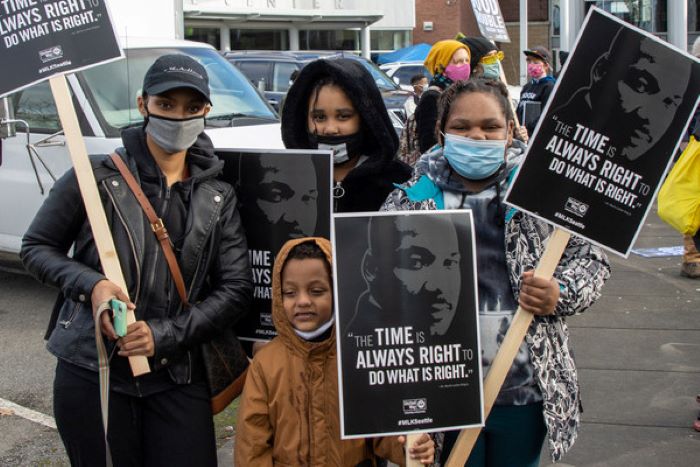
But that allyship unraveled later after Dr. King spoke out against U.S. oppressive policies abroad in the wake of the Vietnam War. In his 1967 Speech, “Beyond Vietnam: A Time to Break the Silence,” King condemned the war and called the United States the greatest purveyor of violence in the world. “If America’s soul becomes totally poisoned, part of the autopsy must read: Vietnam. It can never be saved so long as it destroys the deepest hopes of men the world over.”
King also chastised those who said that as a civil rights leader he should focus solely on that movement and remain silent about American affairs abroad. He said people insisted that “peace and civil rights don’t mix,” and they questioned whether he was hurting the cause of Black people.
In response, Dr. King said, “When I hear them, though I often understand the source of their concern, I am nevertheless greatly saddened, for such questions mean that the inquirers have not really known me, my commitment or my calling. Indeed, their questions suggest that they do not know the world in which they live.”
Johnson was reportedly not only outraged by King’s comments but according to Stanford University’s Martin Luther King Jr. Research and Education Institute, the president fed the press with assertions about King’s ties to communism.
Like many around the world, we at United Way and our allies work toward fulfilling King’s hopes of a world free from hate and oppression. We also recognize that during the latter years of his life, King worked to promote economic rights and economic justice. In our work to ensure that people have access to resources, quality education, enough to eat, and a safe place to call home, we are living what we believe is our commitment, our calling. Much of the work United Way is doing is about addressing the economics of poverty and housing instability and food instability.
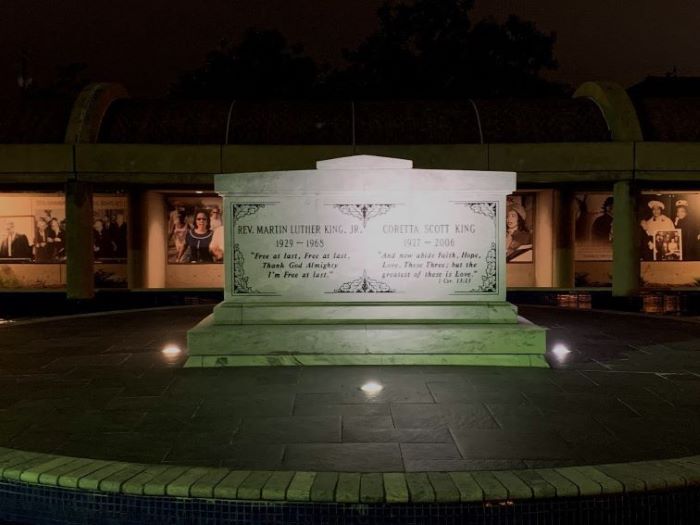
But we also believe in advocating for public policy that addresses the vestiges of systemic racism and oppression. We speak out against hate and identity-based oppression. We partner with and support organizations that work to uplift King County communities that have not benefitted from its economic prosperity or have been historically marginalized by housing and job discrimination.
Like Dr. King, we have been accused of venturing too far out of our lane. We have fielded queries about whether a nonprofit organization dedicated to serving the needs of those mired in poverty should speak about war, racial justice, or activism.
We know that when you stand up for what is right, you will garner your share of detractors. But we believe that achieving full civil rights and human rights is not complete if you don’t have a house that is a home, if you don’t have an ability to acquire the food you and your family need, and if you are not respected for who you are.
You cannot have economic prosperity without addressing economic injustice.
United Way of King County president and CEO Gordon McHenry, Jr.
We believe that tackling poverty, homelessness, and food insecurity without addressing the ills that caused them would be tantamount to trying to clean up flooded streets while ignoring a burst water main. You cannot have economic prosperity without addressing economic injustice.
That is why we believe that one of the best ways to honor Dr. King on the holiday named in his honor is to learn about the significant number of inequities that exist in our communities and to understand that Dr. King was about civil rights and economic justice.
We use this time to increase our focus and commitment to building a community of belonging. We must learn about the many dimensions of Dr. King and embrace his concerns for civil rights, for economic rights, and for a society characterized by love and not violence, where all people can truly belong.

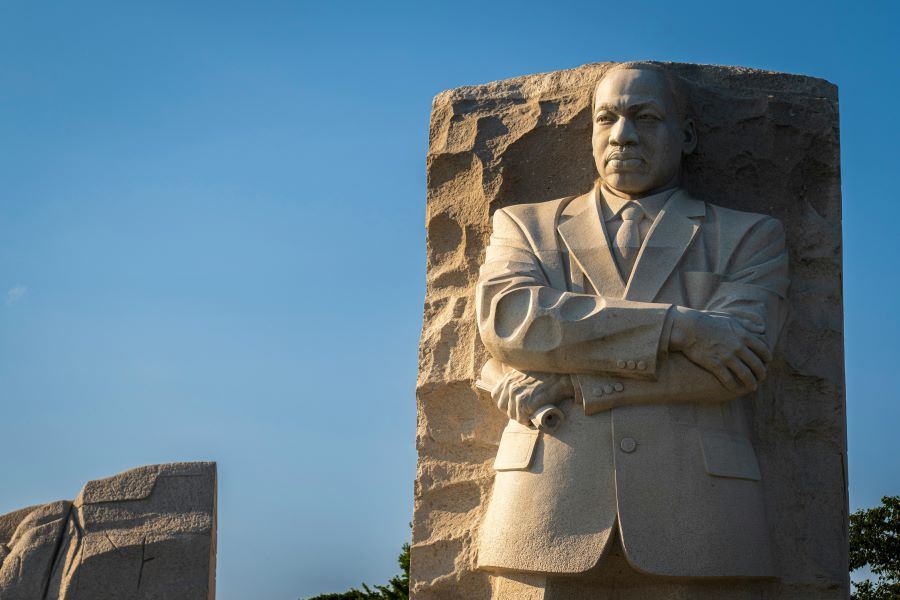
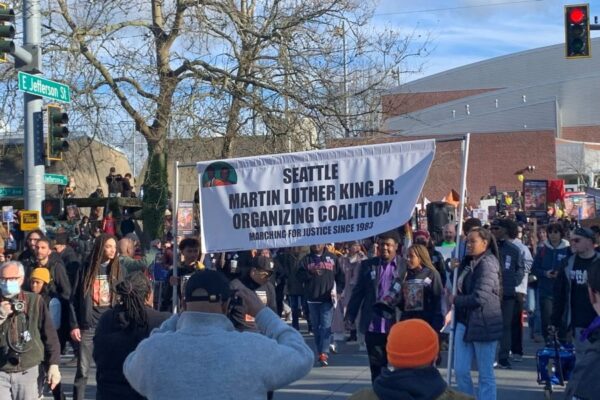
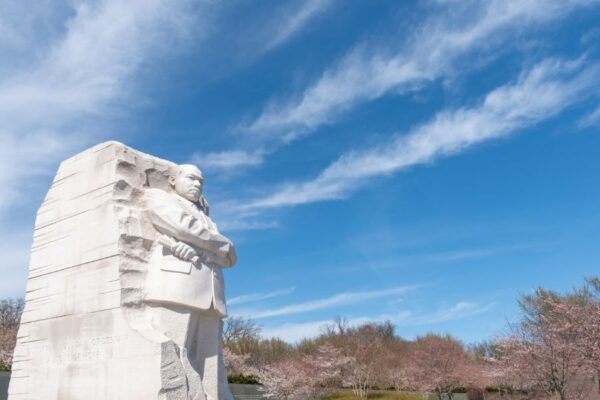
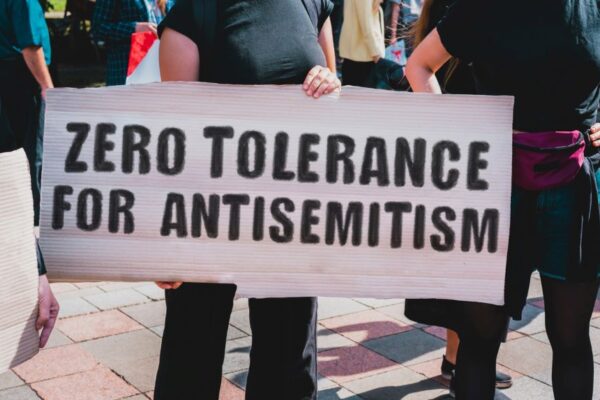
Comments